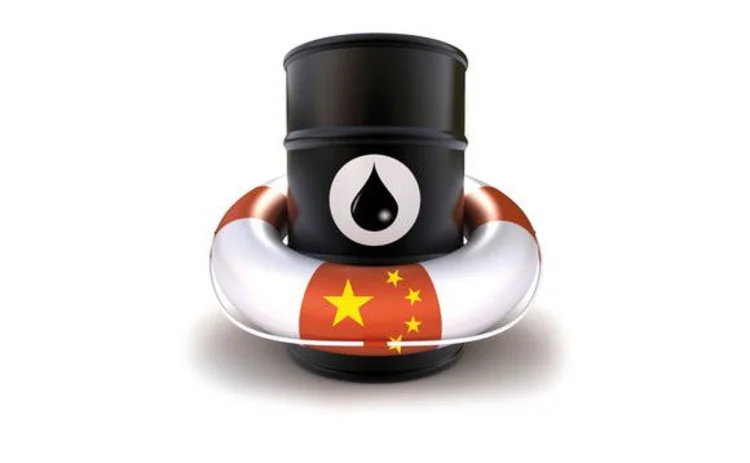
Nigerian official says oil exports not at risk
Nigeria’s oil minister has dismissed market reports that the country’s oil supply will dramatically tighten following insolvency rumours and major plans for offshore drilling

Diezani Allison-Madueke, Nigeria's Oil official, has hit out at fears that Nigeria's oil exports will tighten, following reports that the country's state-owned oil firm, the Nigerian National Petroleum Company (NNPC), risks insolvency because it is unable to pay its $5 billion worth of debts.
"I think that all the creditors of the operators in Nigeria are fully aware of the timelines for payment and exactly what that entails," says Allison-Madueke. "I can assure you that if there was any question about [the risk of insolvency] that we would have various liens on our products on the high seas at this time. As of June 30 this year, the assets on NNPC far outstrip the liabilities and over the tune of $1 billion. So right now there is no question of insolvency."
Two weeks ago, Nigeria's Junior Finance Minister Remi Babalola was reported by the the BBC to have said that the NNPC had asked for help to cover its debts and fund its operations.
"NNPC is insolvent as current liabilities exceeded current assets by 754 billion naira ($5 billion; £3.3 billion)," Mr Babalola was reported to have told a government finance meeting according to the UK news station. "NNPC owed about $3 billion to Nigeria's Federation Account, which distributes oil money to varying levels of the country's government."
Meanwhile, Nigeria, one of the world's largest oil exporters is continuing to seek new oil reserves by exploring and producing oil through offshore drilling. Allison-Madueke said that despite the tense climate surrounding offshore drilling after BP's Gulf of Mexico oil spill, this method of oil exploration and production will not put oil supplies at risk.
"I wouldn't say there's more risk," says Allison-Madueke. "I think in the business of exploration and production, the concern about oil spills is an occupational hazard. Whether it's offshore, deep offshore or onshore that is a risk we constantly try to mitigate. It's not more of a risk, but we hope that we have the essential processes and procedures in place to deal with [this situation] should it occur."
The Nigerian government is aiming for an oil production capacity target of 4 million barrels per day (b/d) by the end of 2010. However, this is more than double recent output. During 2009, productive capacity that was offline as a result of attacks on the oil infrastructure averaged between 700,000 and 800,000 b/d, according to BNP Paribas' Oil and Natural Gas Macro Roadmap for 2010 report. By the end of 2009, production levels rose back up to previous years' levels, reaching around 2 million b/d, says BNP Paribas.
Nigerian crude production fluctuates from year to year. The US Energy Information Administration (EIA) has yet to confirm the entire full 2009 year figures, but it says Nigerian crude oil production fell to 1.82 million barrels per day from 1.94 million b/d in 2008. This does not include the back-end figures BNP Paribas mentions.
In 2008, monthly oil production ranged between 1.8 million and 2.1 million b/d. If current shut-in capacity were to be back online, the EIA estimates Nigerian oil production could have reached 2.7 million b/d in 2008. Full-year 2009 statistics are still being calculated.
Only users who have a paid subscription or are part of a corporate subscription are able to print or copy content.
To access these options, along with all other subscription benefits, please contact info@risk.net or view our subscription options here: http://subscriptions.risk.net/subscribe
You are currently unable to print this content. Please contact info@risk.net to find out more.
You are currently unable to copy this content. Please contact info@risk.net to find out more.
Copyright Infopro Digital Limited. All rights reserved.
You may share this content using our article tools. Printing this content is for the sole use of the Authorised User (named subscriber), as outlined in our terms and conditions - https://www.infopro-insight.com/terms-conditions/insight-subscriptions/
If you would like to purchase additional rights please email info@risk.net
Copyright Infopro Digital Limited. All rights reserved.
You may share this content using our article tools. Copying this content is for the sole use of the Authorised User (named subscriber), as outlined in our terms and conditions - https://www.infopro-insight.com/terms-conditions/insight-subscriptions/
If you would like to purchase additional rights please email info@risk.net
More on Energy
Energy Risk Commodity Rankings 2024: markets buffeted by geopolitics and economic woes
Winners of the 2024 Commodity Rankings steeled clients to navigate competing forces
Chartis Energy50
The latest iteration of Chartis’ Energy50 ranking
Energy trade surveillance solutions 2023: market and vendor landscape
The market for energy trading surveillance solutions, though small, is expanding as specialist vendors emerge, catering to diverse geographies and market specifics. These vendors, which originate from various sectors, contribute further to the market’s…
Achieving net zero with carbon offsets: best practices and what to avoid
A survey by Risk.net and ION Commodities found that firms are wary of using carbon offsets in their net-zero strategies. While this is understandable, given the reputational risk of many offset projects, it is likely to be extremely difficult and more…
Chartis Energy50 2023
The latest iteration of Chartis' Energy50 2023 ranking and report considers the key issues in today’s energy space, and assesses the vendors operating within it
ION Commodities: spotlight on risk management trends
Energy Risk Software Rankings and awards winner’s interview: ION Commodities
Lacima’s models stand the test of major risk events
Lacima’s consistent approach between trading and risk has allowed it to dominate the enterprise risk software analytics and metrics categories for nearly a decade
2021 brings big changes to the carbon market landscape
ZE PowerGroup Inc. explores how newly launched emissions trading systems, recently established task forces, upcoming initiatives and the new US President, Joe Biden, and his administration can further the drive towards tackling the climate crisis







